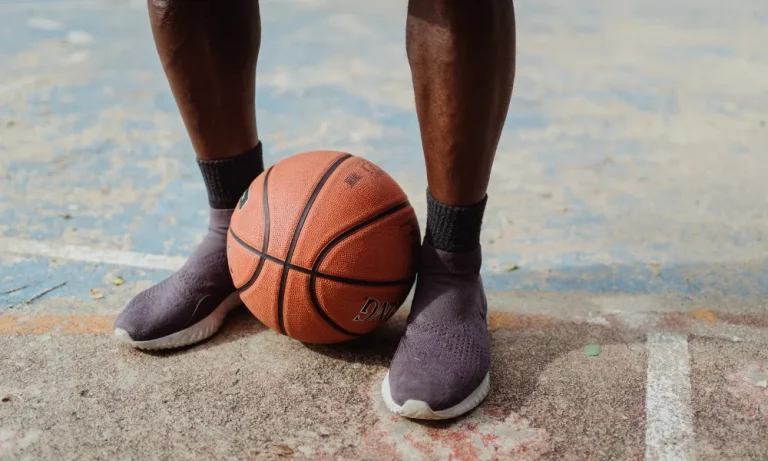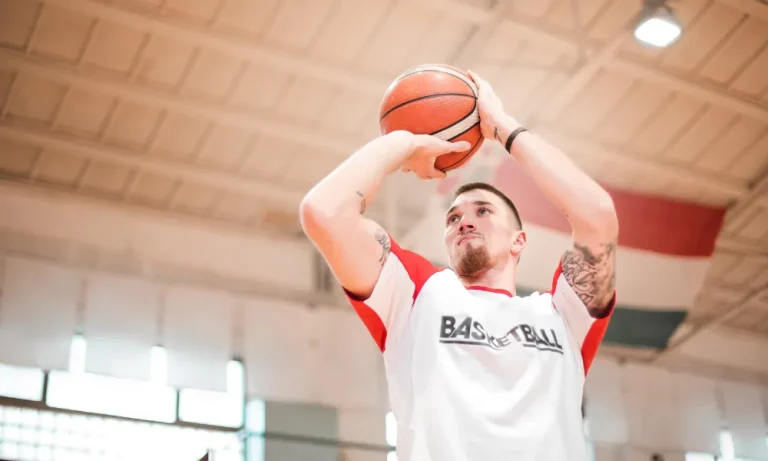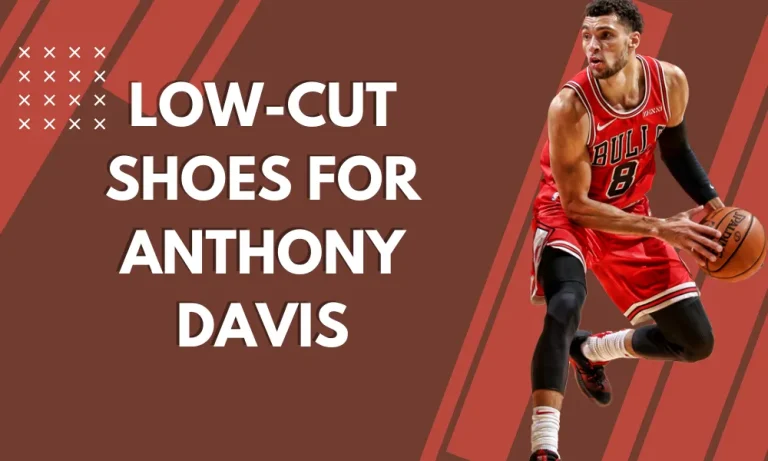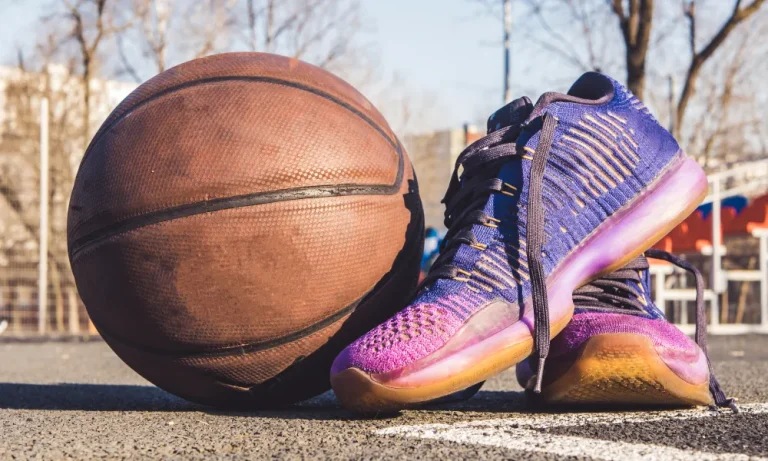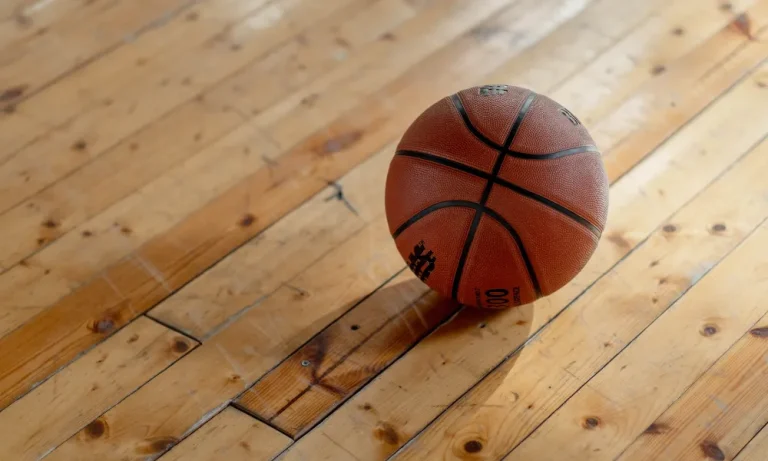Basketball Tips for Small Players to Overcome Challenges
Are you a small player looking to dominate the basketball court? Don’t let your size hold you back! In this guide, we’ll share valuable tips and strategies specifically designed for small players like you.
Discover how to make the most of your agility, speed, and technique to excel against taller opponents. Get ready to level up your game and leave your mark on the court!
Understanding Your Strengths
As a small player, it’s essential to understand and embrace your unique advantages on the basketball court. By identifying and leveraging these strengths, you can excel against taller opponents and make a significant impact in the game.
Speed, Quickness, and Agility
One of the significant benefits you possess as a small player is your speed, quickness, and agility. These attributes allow you to maneuver swiftly, change direction rapidly, and outmaneuver taller opponents.
Use your speed to your advantage by creating space, driving to the basket, and evading defenders. Your quickness and agility make you elusive and harder to guard, giving you an edge on the court.
Low Center of Gravity and Body Control
Having a low center of gravity is another advantage for small players. It provides better balance and stability, allowing you to make quick cuts, change directions, and maintain control while dribbling or driving to the basket.
Combine this with good body control, and you become a difficult player to guard. Focus on enhancing your body control through balance exercises and practicing moves that require coordination.
Developing Essential Skills
Developing essential skills is crucial for small players to excel on the basketball court. By focusing on specific areas, such as ball-handling and shooting, you can enhance your overall game and become a formidable player.
Significance of Ball-Handling Skills
Ball-handling skills are essential for small players as they enable you to navigate through tight spaces, evade defenders, and maintain control of the ball. Good ball-handling allows you to penetrate the defense, create scoring opportunities, and make accurate passes.
Practice dribbling drills that focus on control, speed, and change of direction to improve your ball-handling ability.
Tips and Drills for Dribbling Improvement
To enhance your dribbling ability, incorporate drills that emphasize control and coordination. Start with basic stationary dribbling drills, gradually progressing to more advanced drills that involve movement and game-like scenarios.
Work on dribbling with both hands to become ambidextrous, allowing you to dribble confidently in any situation.
Importance of Shooting Accuracy
Shooting accuracy is crucial for small players as it compensates for height disadvantages. Develop a consistent shooting form and work on improving your shooting accuracy through repetition and proper technique. Focus on your footwork, balance, and follow-through.
Additionally, practice shooting from various spots on the court to simulate game situations.
Shooting Techniques for Small Players
As a small player, it’s essential to adapt your shooting technique to maximize your chances of success. Utilize a quick release to minimize the time defenders have to contest your shot.
Develop a high arc on your shot to increase the likelihood of it clearing taller defenders. Incorporate floaters and mid-range jumpers into your arsenal to counter taller shot-blockers.
Utilizing Quickness and Agility
In the game of basketball, speed, and agility are vital for small players to make a significant impact on the court. By harnessing these attributes, you can outmaneuver taller opponents, create scoring opportunities, and excel in your position.
Importance of Speed and Agility
Speed and agility are essential for small players as they provide a competitive edge against taller opponents. With quickness, you can blow past defenders, create space, and drive to the basket.
Agility allows you to change directions swiftly, evade defenders, and react quickly to game situations. These attributes are key to your success on the court.
Exercises and Training Methods
To enhance your quickness and lateral movement, incorporate specific exercises into your training routine. Agility ladder drills are excellent for improving footwork and coordination.
Cone drills, such as the 5-10-5 drill, focus on quick changes of direction. Plyometric exercises, such as box jumps and lateral bounds, help develop explosive power. Incorporate these exercises into your training sessions to boost your speed and agility.
Advantage of Quickness against Taller Opponents
As a small player, your quickness can be your greatest weapon against taller opponents. Use your speed to your advantage by constantly moving, cutting, and changing direction.
By doing so, you can create mismatches, drive to the basket, and draw fouls. Quickness allows you to exploit gaps in the defense and make plays that taller opponents may struggle to defend against.
Strategic Gameplay Tips
Overcoming height disadvantages can be a challenge for small players on the basketball court. However, by employing effective strategies, utilizing screens, and making smart decisions, you can maximize your impact and contribute to your team’s success.
Strategies for Height Disadvantages
To overcome height disadvantages, small players must utilize their quickness, agility, and basketball IQ. Focus on creating space by using quick cuts, change of pace, and deceptive moves to confuse defenders.
Utilize your speed to your advantage by constantly moving without the ball and exploiting gaps in the defense. By playing to your strengths and exploiting the weaknesses of taller opponents, you can neutralize their height advantage.
Tips for Creating Space and Utilizing Screens
Creating space is crucial for small players to find open shots and drive to the basket. Use hesitation moves, crossovers, and fakes to create separation from defenders.
Utilize screens effectively by communicating with your teammates and using them as shields to gain an advantage. Develop a good understanding of timing and angles to maximize the effectiveness of screens.
Importance of Basketball IQ and Decision-Making Skills
Basketball IQ and decision-making skills are paramount for small players. By understanding the game’s nuances, recognizing defensive schemes, and making quick decisions, you can outsmart taller opponents.
Develop your court vision to identify open teammates and make precise passes. Improve your decision-making by studying game situations and learning from past experiences. A high basketball IQ allows you to make the right choices under pressure and contribute positively to your team’s success.
Defensive Techniques
Defensive strategies and techniques are crucial for small players to excel on the basketball court. Despite height disadvantages, small players can make a significant impact on defense by employing effective strategies, guarding taller opponents intelligently, and playing disciplined help defense.
Strategies for Small Players
Small players must rely on their quickness, agility, and defensive instincts to counter taller opponents. Stay low and maintain a defensive stance to maximize your ability to move quickly and react.
Anticipate your opponent’s moves by studying their tendencies and positioning yourself accordingly. Stay active on defense, constantly moving your feet, and using your quickness to disrupt passing lanes and deny easy shots.
Guarding Taller Opponents
When guarding taller opponents, focus on using your quickness and positioning to your advantage. Stay close to your opponent, denying them easy shots and driving lanes. Use your agility to contest shots effectively by getting your hands up and timing your jumps well.
Be physical without fouling, employing active hands to disrupt their dribble and passing lanes. Utilize your speed to recover quickly if your opponent manages to get past you.
Importance of Anticipation and Quick Reactions
Anticipation and quick reactions are paramount on defense. Study your opponent’s moves, tendencies, and shooting preferences to anticipate their next move.
By reading their body language and using your basketball IQ, you can anticipate passes, cuts, and shots, allowing you to react swiftly and disrupt their offensive flow. Quick reactions enable you to close out on shooters, and contest shots, and make timely steals.
Mental Preparation and Confidence
Mental preparation and self-belief are essential for small players to thrive on the basketball court. Regardless of physical disadvantages, having the right mindset can elevate your performance and help you overcome challenges.
The Power of Mental Preparation
Mental preparation plays a pivotal role in a player’s performance. Visualize success and imagine yourself executing plays flawlessly.
Develop a pre-game routine that includes positive self-talk, deep breathing, and focusing on your strengths. By mentally preparing yourself before stepping onto the court, you can enhance your focus, concentration, and overall performance.
Boosting Confidence and Staying Motivated
Confidence is key for small players. Focus on your strengths and the unique skills you bring to the game. Celebrate small victories and build on them to boost your confidence.
Surround yourself with positive influences, such as supportive teammates and coaches. Set achievable goals and track your progress to stay motivated and maintain a positive mindset throughout the season.
Dealing with Challenges and Setbacks
Challenges and setbacks are inevitable in basketball. Rather than letting them discourage you, view them as opportunities for growth. Learn from your mistakes, analyze what went wrong, and make adjustments.
Stay resilient, maintain a positive attitude, and keep working hard. Seek support from teammates and coaches, as they can provide valuable guidance and encouragement during tough times.
FAQs
What are some defensive strategies small players can use to guard taller opponents?
Small players can utilize their quickness and agility to stay close to their opponents, deny easy shots, and use active hands to disrupt passing lanes.
How can small players boost their confidence on the basketball court?
Small players can boost their confidence by focusing on their strengths, setting achievable goals, celebrating small victories, and surrounding themselves with positive influences.
How important is mental preparation for small players in basketball?
Mental preparation is crucial for small players as it enhances focus, concentration, and overall performance. Visualizing success and developing a pre-game routine can significantly impact their mindset.
How can small players deal with challenges and setbacks in basketball?
Small players can handle challenges and setbacks by viewing them as opportunities for growth, learning from mistakes, maintaining a positive attitude, seeking support from teammates and coaches, and staying resilient.
What is the significance of anticipation and quick reactions for small players on defense?
Anticipation and quick reactions are vital for small players on defense as they allow them to read their opponents’ moves, disrupt offensive flow, close out on shooters, and make timely steals. These skills maximize their defensive impact on the court.
Conclusion
Small players can excel in basketball by employing effective defensive techniques, developing mental preparation, and maintaining confidence. By utilizing their quickness, anticipation, and agility, small players can guard taller opponents and make a significant impact on defense.
With the right mindset and self-belief, they can overcome challenges and setbacks, ultimately becoming formidable forces on the court. Remember, size doesn’t determine success in basketball; it’s the determination, skills, and mental fortitude that truly matter.

